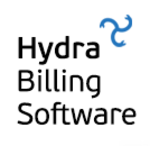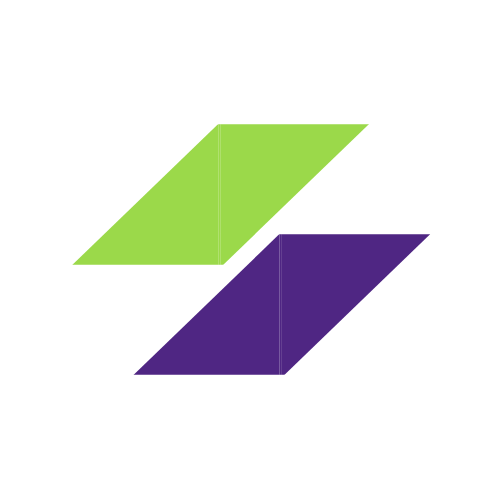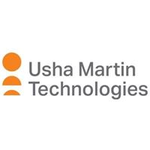Description

Hydra Billing

Smart Workshop
Comprehensive Overview: Hydra Billing vs Smart Workshop
To provide a comprehensive overview of Hydra Billing, Smart Workshop, and Webtel e-Invoicing, let's examine each in terms of their primary functions, target markets, market presence, and key differentiators.
Hydra Billing
a) Primary Functions and Target Markets:
- Primary Functions: Hydra Billing is a comprehensive billing and customer management solution. It specializes in handling complex billing scenarios that include subscription management, invoicing, payment processing, and financial reporting. It often serves businesses requiring intricate billing solutions, such as telecom companies, utilities, and ISPs.
- Target Markets: The main target markets for Hydra Billing are telecommunications, internet service providers, utility companies, and any other industry requiring scalable billing solutions with the ability to manage large volumes of transactions.
b) Market Share and User Base:
- Market Presence: Hydra Billing holds a niche position primarily within telecom and utility sectors. While it is less known compared to industry giants like SAP or Oracle's billing solutions, it enjoys a solid user base within its specific target market due to its specialized capabilities.
c) Key Differentiators:
- Customization and Flexibility: Hydra Billing offers high levels of customization tailored to the specific needs of telecom and ISP businesses.
- Scalability: It is designed to handle very large numbers of simultaneous billing processes, making it ideal for enterprises with extensive customer bases.
- Industry-Specific Features: Provides advanced features specifically for telecom and utility industries, such as metered billing and subscription-based models.
Smart Workshop
a) Primary Functions and Target Markets:
- Primary Functions: Smart Workshop is typically a software solution tailored for managing automotive repair shops or similar workshop environments. It often includes functions like appointment scheduling, inventory management, invoicing, and customer relationship management.
- Target Markets: Automotive service centers, repair shops, and other small to medium-sized workshops.
b) Market Share and User Base:
- Market Presence: Smart Workshop tends to appeal to smaller businesses and is widely adopted in the automotive service industry. Its market share is usually regional, and it is not as widespread as larger ERP systems or specialized software.
c) Key Differentiators:
- User-Friendly Interface: Designed with ease of use in mind, especially for users who may not be technologically savvy.
- Industry-Specific Tools: Offers functionalities that directly support the workflow of automotive workshops, such as parts ordering and tracking, and vehicle history tracking.
- Affordability: Provides a cost-effective solution for small to medium-sized businesses compared to full-scale ERP implementations.
Webtel e-Invoicing
a) Primary Functions and Target Markets:
- Primary Functions: Webtel e-Invoicing primarily focuses on facilitating electronic invoicing and compliance with tax regulations. It provides tools for generating, sending, and managing e-invoices, and integrating with tax authorities for compliance.
- Target Markets: Businesses of all sizes needing to comply with e-invoicing mandates, across multiple sectors but especially in regions with strict electronic invoicing regulations.
b) Market Share and User Base:
- Market Presence: Webtel e-Invoicing is particularly known in regions with stringent e-invoicing regulations, like parts of Europe and India. It has a significant presence in these areas thanks to its compliance features.
c) Key Differentiators:
- Regulatory Compliance: Designed to adapt quickly to changing e-invoicing regulations, ensuring businesses remain compliant effortlessly.
- Integration Capabilities: Offers seamless integration with existing ERP and accounting systems to streamline invoicing processes.
- Focus on E-Invoicing: Specializes in e-invoicing, providing targeted and effective features for businesses looking to digitize their invoicing process.
Comparative Overview
- Target Markets: Hydra Billing is best suited for telecom and utilities requiring complex billing; Smart Workshop is ideal for small to medium-sized service centers; Webtel e-Invoicing serves businesses needing compliance with electronic invoicing mandates.
- Market Share and User Base: Each holds solid user bases within their niches, with Webtel focusing on compliance-heavy regions, Hydra Billing in large-scale telecom environments, and Smart Workshop in localized automotive markets.
- Differentiators: Customization and scalability (Hydra Billing), user-centric design and affordability (Smart Workshop), and compliance and integration capabilities (Webtel e-Invoicing).
Each solution serves distinct purposes and industries, making them incomparable on a direct level but each significant within their specialized domains.
Contact Info

Year founded :
Not Available
Not Available
Not Available
Bulgaria
http://www.linkedin.com/company/hydra-billing-solutions

Year founded :
Not Available
Not Available
Not Available
Not Available
Not Available
Feature Similarity Breakdown: Hydra Billing, Smart Workshop
While I don't have direct access to specific software feature lists or user interfaces, I can provide a generalized analysis based on typical features of similar billing, workshop management, and invoicing solutions. Here's a feature similarity breakdown for these types of products:
a) Core Features in Common
-
Billing and Invoicing:
- All three platforms likely include standard billing and invoicing capabilities, allowing users to generate and send invoices to clients.
-
Customer Management:
- They probably offer basic customer relationship management (CRM) features, including storing customer details and transaction history.
-
Reporting and Analytics:
- Commonly, these platforms will provide reporting tools to generate insights into sales, revenue, and customer data.
-
Payment Processing:
- Integration with payment gateways to process transactions directly within the software should be a feature available across all three.
-
Tax Calculation:
- Automatic tax calculation for invoices and compliance with regional tax laws is usually included.
-
Multi-User Access:
- They likely support multi-user environments, allowing multiple users to access and work within the system simultaneously.
b) User Interface Comparison
-
Hydra Billing:
- Typically, billing solutions focus on straightforward user interfaces geared towards speed and efficiency. Hydra Billing might emphasize a no-nonsense, streamlined approach with intuitive navigation.
-
Smart Workshop:
- This type of software often includes additional features specific to workshop management, which can make the UI more complex. It could have dash panels for scheduling, inventory management, and work order tracking, which requires a balance between functionality and usability.
-
Webtel e-Invoicing:
- Since this is focused on electronic invoicing, the UI might be designed to simplify the invoicing process, with quick access to templates, client history, and e-submissions. It might also include dashboards for compliance and real-time tracking of invoice status.
c) Unique Features
-
Hydra Billing Unique Features:
- If designed specifically for certain industries, it might include unique features such as industry-specific tax codes or subscription management for recurring billing.
-
Smart Workshop Unique Features:
- Likely to offer unique features like inventory management, workshop scheduling, equipment tracking, and job costing which are specific to managing workshop operations.
-
Webtel e-Invoicing Unique Features:
- It might have superior integration with various regional e-invoicing standards, advanced digital signature capabilities, or automated compliance checks, making it particularly robust for international invoicing.
Conclusion
While Hydra Billing, Smart Workshop, and Webtel e-Invoicing share common functionalities related to billing and invoicing, they each serve slightly different market needs, leading to differences in user interface design and unique features tailored to their specific use cases. For precise insights, reviewing detailed product documentation or user reviews would provide a clearer perspective on their comparative offerings.
Features

User-Friendly Dashboard
Flexible Payment Options
Customer Management
Automated Billing Cycles
Comprehensive Reporting

User-Friendly Interface
Collaboration Tools
Comprehensive Reporting
Efficient Task Management
Best Fit Use Cases: Hydra Billing, Smart Workshop
Certainly! Here's an overview of the ideal use cases for Hydra Billing, Smart Workshop, and Webtel e-Invoicing, considering the types of businesses or projects they best serve, the scenarios where they excel, and how they cater to various industry verticals and company sizes:
a) Hydra Billing
Best Fit Use Cases:
- Telecommunications Companies: Hydra Billing is ideal for telecom operators looking for complex billing solutions that can handle high volumes of transactions and multiple pricing models.
- Subscription-Based Services: Companies offering SaaS, streaming services, or any subscription-based model benefit from its capability to manage recurring billing and customizable pricing.
- Utilities and ISP Providers: Firms that require precise metering and billing for a variety of services can utilize Hydra Billing's advanced rating engine.
- Large Enterprises: It is suited for businesses needing integration with CRM and ERP systems for comprehensive financial management.
Industry Verticals:
- Telecommunications
- IT Services
- Utilities
- Media & Entertainment
Company Sizes:
- Medium to Large Enterprises that require scalable, robust billing solutions.
b) Smart Workshop
Best Fit Use Cases:
- Automotive Repair Shops: Smart Workshop is designed to streamline operations in car repair and maintenance garages, helping manage appointments, inventory, and billing.
- Small Manufacturing Units: It can be useful for small-scale manufacturers needing to manage production schedules, inventory, and workspace more efficiently.
- Artisan Workshops and Craft Studios: Those that require detailed job tracking, customer management, and workflow optimization.
Industry Verticals:
- Automotive and Repair
- Manufacturing
- Crafts and Workshops
Company Sizes:
- Small to Medium Enterprises and independent businesses where workshop management is crucial.
c) Webtel e-Invoicing
Best Fit Use Cases:
- Retail and eCommerce: Ideal for businesses needing to automate invoicing and compliance with GST or VAT regulations.
- Freelancers and Consultants: Beneficial for individuals who require a simple, efficient way to bill clients and manage invoices.
- Small to Mid-Sized Companies: Companies looking to transition from paper-based to electronic invoicing will find this solution effective for cost reduction and streamlining operations.
Industry Verticals:
- Retail and eCommerce
- Professional Services
- Logistics
Company Sizes:
- Small to Medium Businesses with a need for easy invoicing solutions to comply with local tax regulations and improve transaction efficiency.
d) Catering to Different Industry Verticals and Company Sizes
- Hydra Billing handles complex billing scenarios and requires integration capability, making it suitable for larger companies in specific industries like telecom and utilities.
- Smart Workshop focuses on operational management within workshops and manufacturing, catering to smaller businesses needing more hands-on workflow and inventory solutions.
- Webtel e-Invoicing provides a straightforward approach to invoicing and taxation, ideal for small to medium enterprises needing compliance and efficiency in their billing practices.
These products each offer tailored solutions that fit distinct needs based on industry, company size, and operational requirements, providing flexibility and specialized functionality for optimal business management.
Pricing

Pricing Not Available

Pricing Not Available
Metrics History
Metrics History
Comparing teamSize across companies
Conclusion & Final Verdict: Hydra Billing vs Smart Workshop
When evaluating Hydra Billing, Smart Workshop, and Webtel e-Invoicing, it's essential to consider the specific needs of the business, the functionality offered by each software, and the overall value provided. Let's break down each product to provide a conclusion and final verdict.
a) Overall Best Value:
Best Overall Value: Webtel e-Invoicing
Webtel e-Invoicing generally provides the best overall value for businesses that prioritize comprehensive invoicing solutions tailored to various compliance requirements. It is especially beneficial for enterprises operating in regions with stringent e-invoicing mandates or those looking for a solution that integrates well with other enterprise systems.
b) Pros and Cons of Each Product:
1. Hydra Billing
- Pros:
- Robust billing system suitable for telecom and subscription-based services.
- Scalable with flexible billing configurations.
- Strong analytics and reporting features.
- Cons:
- May be overly complex for smaller businesses or those with simpler billing needs.
- Requires a steeper learning curve due to its comprehensive feature set.
2. Smart Workshop
- Pros:
- Tailored to the automotive service industry with specific workshop management features.
- User-friendly interface designed for ease of use in a workshop environment.
- Good integration with parts inventory systems.
- Cons:
- Limited application outside the auto service industry.
- May lack broader invoicing or billing features that other industries might require.
3. Webtel e-Invoicing
- Pros:
- Comprehensive invoicing and tax compliance capabilities.
- Seamless integration with other financial and ERP systems.
- Regular updates and scalability for businesses of all sizes.
- Cons:
- May involve additional costs for customization or advanced features.
- Slightly higher upfront implementation time.
c) Specific Recommendations:
-
For Companies in the Automotive Industry: Smart Workshop is the preferable choice if your primary requirement is managing a workshop with inventory tracking and client management features.
-
For Telecom or Subscription-Based Services: Hydra Billing stands out as an excellent option if you require sophisticated billing mechanisms and scalability. Its strengths in handling complex billing environments are unmatched.
-
For Comprehensive Invoicing and Compliance Needs: Webtel e-Invoicing is the best solution for businesses focused on invoicing, financial integration, and compliance. It is suitable for companies operating across multiple regions with varying compliance regulations.
In conclusion, choosing between these products largely depends on the industry and specific needs of your business. While Webtel e-Invoicing provides the best overall value due to its versatility and compliance strengths, Hydra Billing and Smart Workshop offer specialized features that could be more relevant depending on your industry focus. Consider the nature of your requirements and the long-term vision for your business to make the best decision.
Add to compare
Add similar companies



